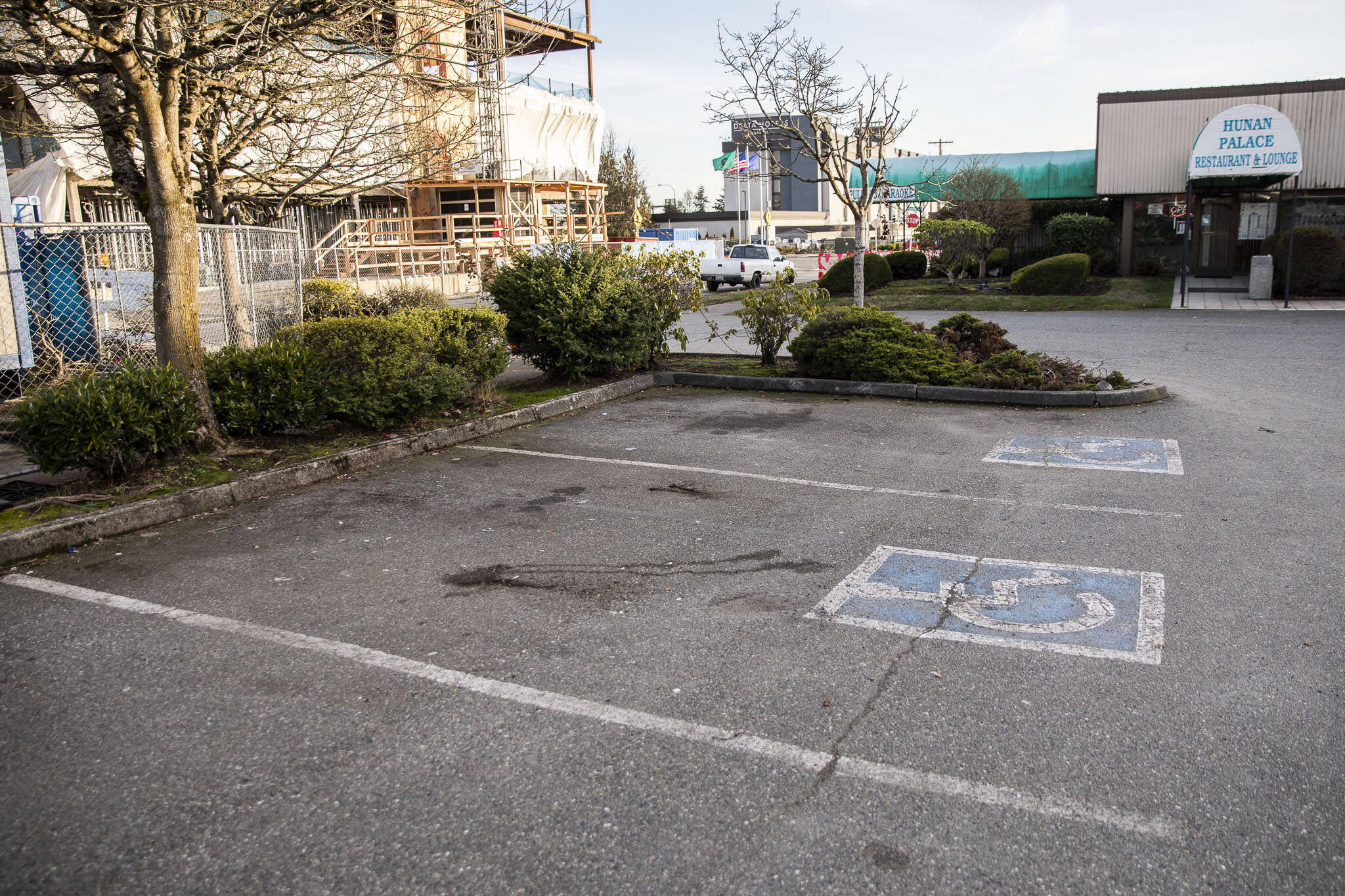Regulars at a bar, diner or restaurant come to feel familiar with their environs.
Some prefer the same booth or stool, ordering “the usual” dish or parking in the same spot (the ones next to landscaping are the best for shade and hopefully reducing the risk of a door ding or scratch).
When that person has a disability, where they can park and enter carries a certain gravity to it.
Len Arnold of Lake Stevens recently noticed someone parking in accessible spaces at his regular lunch spot in Everett. But Arnold didn’t think it was a fellow customer or someone who had a disability placard or license plate.
“Ever since the construction addition to Kaiser Permanente building across the street from Hunan Palace there is hardly any parking for the restaurant customers because it always completely filled with construction worker vehicles,” Arnold wrote to The Daily Herald. “I’m not sure what the law reads for taking up all of a business’s parking but the worst thing that the construction site workers do is take up all of the (accessible) parking… not only is it disrespectful to the business owner trying to make a living, but it’s ethically, and morally wrong to be using up all the (accessible) parking…”
The Americans with Disabilities Act, commonly referred to as ADA, enshrines civil rights for people with disabilities in federal law. One facet of the law dictates physical spaces, such as parking and sidewalks, Northwest ADA Center assistant director Mell Toy said.
The law specifies the number of accessible spaces when parking is made available to the public, whether on private or public property. Those spots are required to have the shortest accessible route to the entrance as well. Parking space size is specified as well to allow room for vehicles with wheelchair lifts.
“A restaurant is more than likely going to fall under the ADA and have ADA responsibilities,” Toy said.
Questions about accessible parking are “easily one of our top three calls that we get in Washington state,” Toy said. When people contact the Northwest ADA Center, staff first try to sort out if the parking issue falls under the federal law. If it is, they inform whoever contacted about the law and often recommend contacting local law or parking enforcement.
There were eight infractions for parking in an accessible space as of Feb. 10 in Everett, according to city data. There were 94 such infractions last year.
Arnold tried that but never heard back from Everett’s parking enforcement. During a recent weekday visit around noon, a Herald reporter saw all four accessible spots open.
Everett parking enforcement treats accessible parking similarly whether on private or public property, city spokesperson Simone Tarver wrote in an email. Parking enforcement doesn’t actively patrol private spaces, but responds when requests are submitted.
But they can only enforce what they see is happening at the moment, not based on photo or video shared later, Tarver wrote.
The city’s parking unit can only enforce rules where there is proper signage as specified in RCW 46.61.581, Tarver wrote.
“If the property owner only has a painting on the parking stall, that isn’t valid, and parking enforcement would not be able to enforce,” Tarver wrote.
The spaces at Hunan Palace don’t have the posted signs.
But parking issues aren’t always just a matter of legality. Toy said the center’s staff also recommend people speak with people at the business about their accessible parking.
“We like to encourage that as a best practice, see if you can get someone who works there at the facility, at that business, to remove that barrier then and there,” Toy said. “It sure would be nice if accessibility was a priority and not something you have to do or wait until an enforcement agency comes knocking.”
Northwest ADA Center staff also want people to know is that not everyone who has a disabled placard or plate has a mobility disability and uses a cane, walker or wheelchair.
Have a question? Call 425-339-3037 or email streetsmarts@heraldnet.com. Please include your first and last name and city of residence.
Talk to us
> Give us your news tips.
> Send us a letter to the editor.
> More Herald contact information.

























